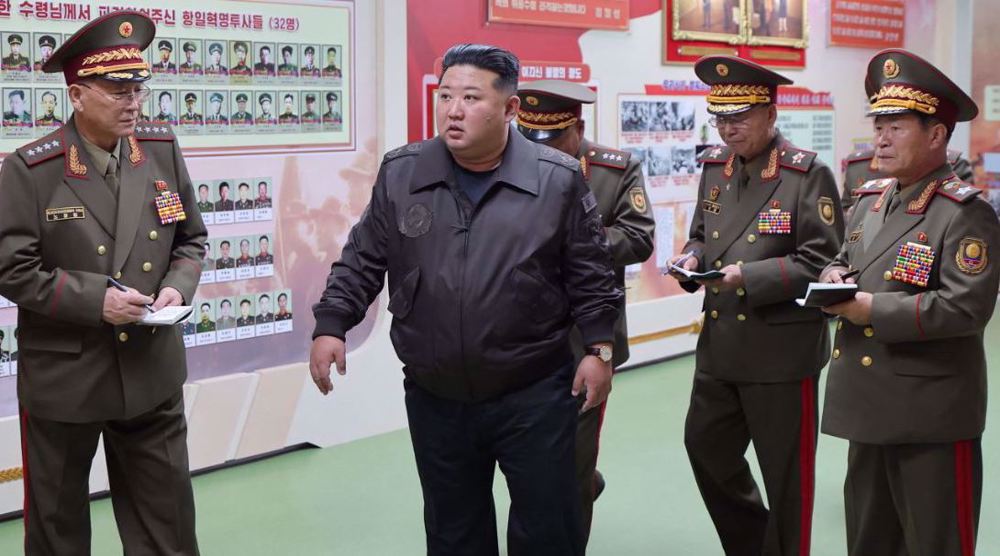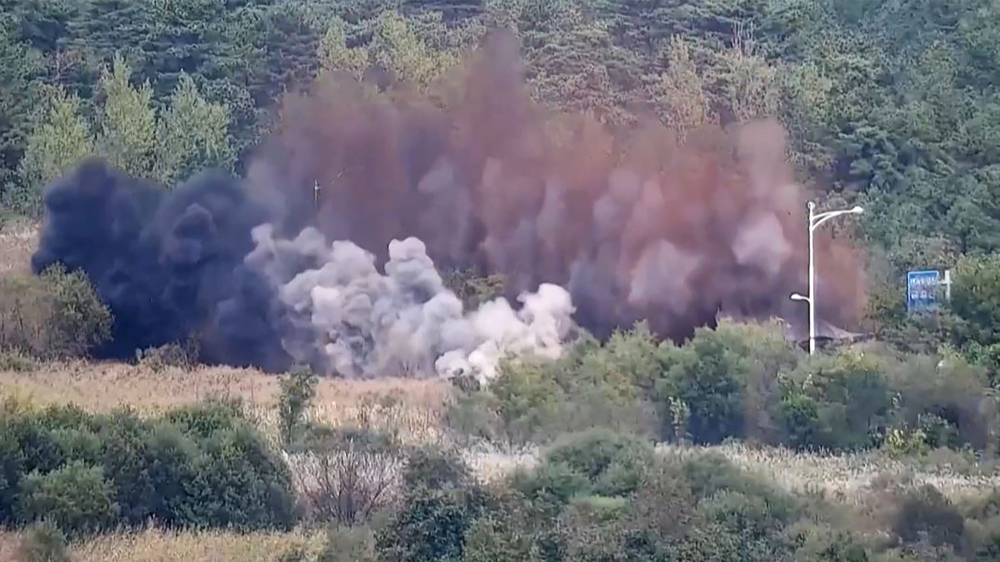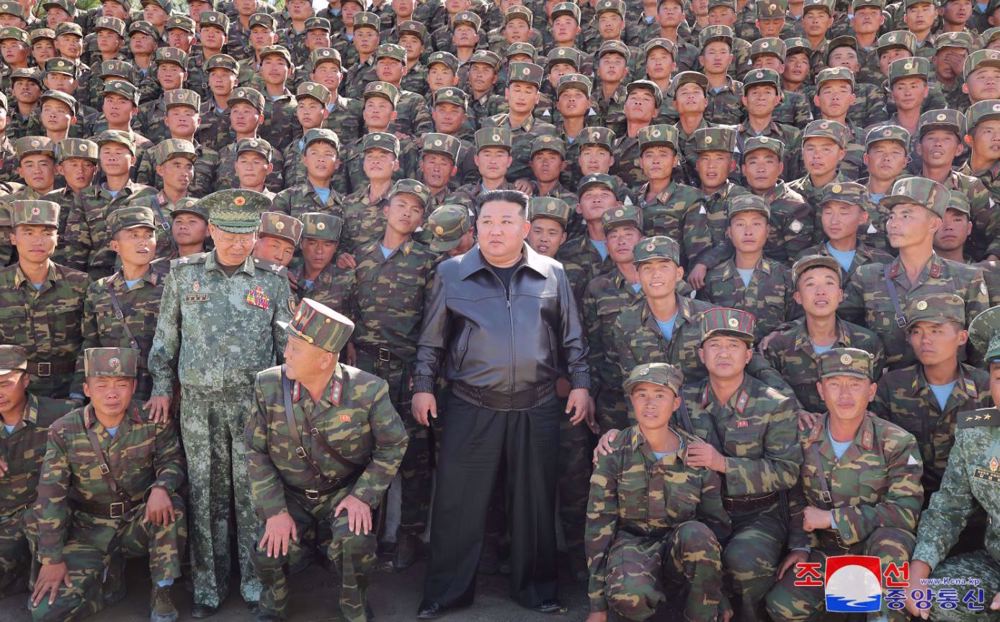N Korea rejects UN bans, warns US of ‘great pain’
North Korea has denounced a United Nations Security Council vote approving a Washington-drafted resolution for more anti-Pyongyang sanctions, warning that the US will soon face the “greatest pain” it has ever experienced.
Han Tae-song, the ambassador of the Democratic People’s Republic of Korea (DPRK) to the United Nations, made the comments on Tuesday at the UN-sponsored Conference on Disarmament in Geneva.
“The Washington regime fired up for political, economic, and military confrontation,” said the diplomat, accusing Washington of being “obsessed with the wild game of reversing the DPRK’s development of nuclear force which has already reached the completion phase.”
He categorically rejected "the latest illegal and unlawful UN Security Council resolution.”
The North is “ready to use a form of ultimate means,” Han said without elaborating. “The forthcoming measures by DPRK will make the US suffer the greatest pain it ever experienced in its history.”
On Monday, the 15-nation UN body unanimously approved the US-drafted resolution to step up the bans against Pyongyang more than a week after the North’s sixth and biggest nuclear test.
Ahead of the Security Council vote, Pyongyang had warned the United States that it would pay a “due price” for spearheading efforts on the sanctions, stressing once again that its nuclear program was part of its “legitimate self-defensive measures.”
Following the vote, South Korea and Japan expressed satisfaction with the United Nations Security Council’s vote.
South Korean and Japanese officials said their countries were ready to exert even more pressure on the North if it refuses to stop its nuclear and missile programs.
Park Su-hyun, a spokesman for the South Korean president, held a news briefing on Tuesday and said Pyongyang needs to realize that a reckless challenge against international peace will bring about even stronger international sanctions against it.
It is significant that China and Russia agree on the need for stronger restrictive measures than previous ones, said the spokesman, adding that Seoul respects the consensus reached by the international community on the North Korea issue.
Japanese Prime Minister Shinzo Abe also said on Tuesday that he highly appreciates “a remarkably tough sanctions resolution.” He added that “it is important to put an unprecedented level of pressure on North Korea to make it change its policies.”
The resolution adopted Monday was a watered-down version of an initial US-proposed text. The original draft was reportedly revised in order to win the support of China and Russia.
Read more:
Among the significant targets on the anti-Pyongyang sanctions list is the North’s textile exports, its second largest after coal and other minerals.
Ahead of the Security Council vote, Pyongyang had warned the United States that it would pay a “due price” for spearheading efforts on the sanctions, stressing once again that its nuclear program was part of the North’s “legitimate self-defensive measures.”
North Korea has been under intense international pressure since the September 3 nuclear test, during which it detonated what was said to be an advanced hydrogen bomb. The bomb was about three times more powerful than America’s atomic bomb that destroyed Japan’s Hiroshima in 1945.
In related news, Peru’s government declared North Korea’s ambassador persona non grata and gave him five days to leave the country on Monday.
The Foreign Ministry said it decided to expel Ambassador Kim Hak-chol because of Pyongyang’s repeated flaunting of resolutions by the UN Security Council against its nuclear program.
Meanwhile, a South Korean news agency says Egypt’s defense minister has in a visit to Seoul announced that his country has cut military ties with North Korea.
Yonhap quoted the South Korean Defense Ministry as saying that Egypt’s Defense Minister Sedki Sobhi said Cairo had “already severed all military ties with North Korea.”
The decisions follow a similar rebuke by Mexico recently.
In another development, China’s Big Four state-owned banks have stopped providing financial services to new North Korean clients, according to branch staff.
So far, punitive measures against North Korea have failed to stop the country’s nuclear and missile programs.
Pyongyang says it needs its advanced military program as a deterrent in the face of hostile policies by the United States and its regional allies, including South Korea and Japan.
Iran relies on natural gas for nearly 90% of its power production: Expert
US embassy in Beirut blocks Iraq-Lebanon humanitarian air bridge
VIDEO | UK's Starmer targets journalists
Israel plans to displace Palestinians in occupied West Bank: Hamas
Iranian airlines ramp up Istanbul route flights after EU sanctions
British protesters slam UK’s complicity in Gaza genocide on Balfour day
US surgeon haunted by Gaza children with ‘single gunshot wounds to head’
VIDEO | Iran's possible retaliation against Israel















 This makes it easy to access the Press TV website
This makes it easy to access the Press TV website